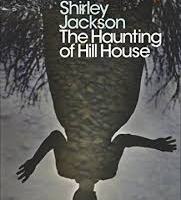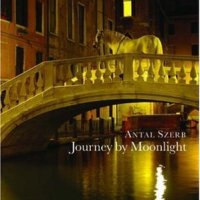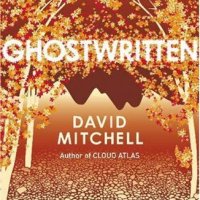Iain Banks is a curious beast, a writer both of literary fiction and SF, successful in both fields. He’s achieved that success partly through being a very good writer, and partly by inserting a middle initial into his name whenever he writes SF so enabling bookshops to file his literary fiction in that section under the name Iain Banks and his SF in that section under the name Iain M. Banks. Apparently, the presence of the initial helps with computerised catalogues.
Of such things are careers made.
I first encountered Banks as a literary author, reading early works such as the Bridge, and a fair number of his later works such as The Crow Road and Complicity. There’s a good argument to be made though that his heart lies in his SF, most particularly his Culture novels – named after a highly advanced and utopian joint human/AI supercivilisation which forms the backdrop of most of his SF output.
The irony with Banks, is that I suspect much of his literary readership ignore his SF, and to a perhaps slightly lesser extent vice versa. But of course, the quality of the writing, the concerns of the author, these are things that don’t change with the addition or omission of a spaceship or two.
Before I talk about Consider Phlebas, Banks’s 1987 SF debut, one last note on the man himself. A while back, flying to Glasgow, I sat in a lounge in Heathrow reading Complicity. I had the book held in front of my face, by coincidence a Guardian interview with Banks open before me on the table. I put the book down for a moment, and discovered I was sitting opposite Banks, from his perspective conspicuously holding his book in the air and with his photo in front of me. It’s very hard to read a novel when the author is sitting a few yards from your face, I don’t recommend it. Banks probably now thinks I’m stalking him. On the plus side, Complicity is very good – covering similar ground to What a Carve Up by Jonathan Coe but for me more successfully.
Anyway, Consider Phlebas. Published in 1987, this is a an example of epic space opera, a sprawling work that features a vast galactic war between the Idirians (an alien race of religious fanatics with a belief in their own manifest destiny) and the Culture (the post-scarcity AI run supercivilisation referred to above). Caught in the middle of this, is one Bora Horza Gobuchul, a human agent of the Idirians, ideologically opposed to the Culture, and a member of a manufactured subspecies capable of limited shapechanging so as to infiltrate enemy groups.
Horza then is our protagonist, and an interesting one as Banks’ sympathies are plainly with the Culture, Horza’s enemies. The Culture is essentially a utopia, Horza’s opposition to it based largely on anti-AI prejudice, later novels almost all focus on the Culture and the entire sequence is known as the Culture novels. Why here then is the protagonist an enemy of the civilisation Banks clearly sees as enlightened and humanist? Partly I think dramatic tension, and partly the perpetual problem with utopias – it’s very hard to wring drama from people living contented lives within the best of all possible worlds. Horza’s life is far from content, his far from the best of all possible worlds.
For the bulk of the novel, Horza and those opposing him are chasing a McGuffin. The AIs of the Culture are known as Minds, at their best these are beings with intelligence that exceeds the capacities of humans and Idirians by orders of magnitude. They are the Culture’s real advantage, the key to its success. One of these Minds has crashed on a dead planet protected by an ascended superrace, only a very limited number of people are allowed to the surface, and Horza is one of that number. The essential plot then, is Horza’s attempt following his separation from the Idirians in a space battle to recover the Mind and avoid the Culture’s attempts to stop him. McGuffins, how did plots work before we thought of them?
All of which suggests this is a plot driven work, but really it’s not. It’s much more a novel of adventure and sweeping scope. The novel opens with Horza facing an ingenious and unpleasant method of execution, there’s a daring rescue, a space battle, Horza is picked up by pirates, joins the crew, the pirates carry out a series of raids, we’re not even at the half way point yet and there’s plenty of incident left. We have gunfights, at least two panicked and spectacular escapes from imminent death, peculiar religious cults, romance, an awful lot of people dying (onscreen and off) and enough action to fill half a dozen less ambitious novels.
He spun round, tightening his finger on the trigger, but there was nobody there. Instead, a small round thing, about the size of a child’s clenched fist, wobbled on the top of the balustrade and plonked down on the moss about a metre away. He kicked at it with his foot and dived across the body of the dead monk.
The grenade detonated in mid-air, just under the balcony.
Horza jumped up while the echoes were still cracking back from the altar. He leapt into the doorway at the far end of the balcony, putting out one hand and grabbing the soft corner of the wall as he went past, spinning himself round as he fell to his knees. He reached out and grabbed the dead monk’s gun from the corpse’s slack grip, just as the balcony started to come away from the wall with a glassy, grinding noise. Horza shoved himself back into the corridor behind him. The balcony tipped bodily away into the empty space of the hall in a dully glittering cloud of fragments and fell with a great shattering crash onto the floor below, taking the shadowy form of the dead monk fluttering with it.
Along with all this, there is constantly an emphasis on scale. The Idirian/Culture war spans thousands of solar systems, hundreds of billions of people are killed, Horza visits an artificial ringworld spanning a sun (a clear homage to Niven) which is so vast that two kilometre long ships perpetually cruise its surface, yet barely take any of its space. Horza spends a fair amount of time trapped on a tiny island on the ring, Banks using the claustrophobic circumstance as another way of emphasising the stellar scale of the overall structure.
Vavatch lay in space like a god’s bracelet. The fourteen-million-kilometre hoop glittered and sparkled, blue and gold against the black gulf of space beyond. As the Clear Air Turbulence warped in towards the Orbital, most of the Company watched their goal approach on the main screen in the mess. The acquamarine sea, which covered most of the surface of the artefact’s ultradense base material, was spattered with white puffs of cloud, collected in huge storm systems or vast banks, some of which seemed to stretch right across the full thirty-five-thousand kilometre breadth of the slowly turning Orbital.
Only on one side of that looped band of water was there any land visible, hard up against one sloped retaining wall of pure crystal. Although, from the distance they were watching, the sliver of land looked like a tiny brown thread lying on the edge of a great rolled-out bolt of vivid blue, that thread was anything up to two thousand kilometres across; there was no shortage of land on Vavatch.
Its greatest attraction, however, was and had always been the megaships.
Across the galaxy, a key Culture strategist lives on orbital platforms so vast they house artificial mountain ranges, oceans, billions of inhabitants. A dead planet contains kilometres of huge tunnels, containing massive trains built in a complex designed to survive nuclear assault. Everywhere, there is scale, size, vastness. Card games played on planets about to fall into black holes, a diversity of species so great that reference can be made to past civilisations that spanned thousands of stars and yet are now forgotten, a war so huge it continues for decades with entire civilisations being inadvertently caught up in its traces, and yet is ultimately described as a “small, short war”.
At its best, this sense of scale and vastness works tremendously, space opera at its finest. It also allows Banks to do something quite clever, Horza and his opponents all consider their part of the conflict tremendously important. Traditionally, in Space Opera, it would be, the protagonist’s actions shaping the outcome of the war. Here though, this is simply a side skirmish, important to its participants, but with no implication of any real wider importance. War consists of a great many small conflicts, many of which may for a while be strategically important, but in the context of the overall conflict loss or victory of one rarely makes a significant difference to the final outcome. Here, Banks consciously undermines the role of the hero in space opera, while still celebrating the sweep and grandeur of the genre.
More problematically, many of the characters are fairly forgettable, characterisation is light throughout and as a shape changing professional infiltrator Horza’s own personality is fairly plastic, often changing to the needs of the situation. Characters are broadly drawn, with a couple of identifying traits, and while characterisation is far better than say with Stephen Baxter (who’s got very lazy on that front in my view) it’s fair to say the focus is on the big picture, not the small detail. I would make an honourable exception for Unaha-Closp, a rather passive-aggressive maintenance drone accidentally kidnapped by Horza who then spends a large chunk of the novel making disparaging remarks about the company he’s forced into. One of the novel’s many jokes is that most of the characters regard UC as merely a machine, but (and I don’t think this is at all accidental) he is in fact one of the more rounded characters in the book.
‘Machine,’ [Horza] said, ‘we’re going to Schar’s World. If you want to go back to the GSV I’ll gladly put you in a vactube and let you make your own way back. But you mention returning and getting a fair trial one more time and I’m going to blast your synthetic fucking brains out, understand?’
‘How dare you speak to me like that!’ the drone bellowed. ‘I’ll have you know I am an Accredited Free Construct, certified sentient under Administration and with full citizenship of the Vavatch Heterocracy. I am near to paying off my Incurred Generation Debt, when I’ll be free to do exactly what I like, and have already been accepted for a degree course in applied paratheology at the university of-‘
‘Will you shut your goddamn … speaker and listen?’ Horza shouted, breaking into the machine’s breathless dialogue. ‘We’re not on Vavatch, and I don’t care how god-damned smart you are, or how many qualifications you’ve got. You’re on this ship and you do as I say. You want to get off? Get off now and float back to whatever’s left of your precious fucking Orbital. Stay, and you obey orders. Or get junked.’[Unaha-Closp, after some discussion, unsurprisingly decides to stay.]
‘But I am obliged to serve immediate notice on you that under the terms of my Retrospective Construction Agreement, my Incurred Generation Debt Loan Agreement and my Employment Contract, your forcible removal of myself from my place of work makes you liable for the servicing of said debt until my return, as well as risking civil and criminal proceedings-‘
‘Fucking hell, drone,’ Yalson interrupted. ‘Sure it wasn’t law you were going to study?’
‘I take full responsibility, machine,’ Horza told it. ‘Now, shut-‘
‘Well, I hope you’re properly insured,’ the drone muttered.
‘-up!.
Pacing is also sometimes an issue. Banks can (and does) write sequences which are genuinely thrilling, a desparate battle in an alien temple, a terrified flight from a colossal but dying ship, Horza clinging to the outside of a shuttle coming under fire. The problem is, entire sections of the book are essentially unnecessary. At one point, Horza is trapped with a vicious and insane religious cult. It’s fun stuff, though rather gory in places, but it could be deleted in its entirety with no impact on the rest of the novel. Horza gets stranded with the cult, later escapes, everything that happens in between is mere incident which may be enjoyable but which also is a diversion from the main story and has no consequences for it.
Finally, though this is a much lesser point, the science is sometimes a bit off. This isn’t a hard sf novel, so complaining about hyperspace without causality violation would be to rather fundamentally miss the point, but I did rather groan when a character travelling in a vacuum at 1g turned off his suit-jets and promptly came to a halt. Happily, in the main no attempt is made to explain the superscience found in the work, the characters understand it no better than I do the workings of my ipod and take its functioning equally for granted.
Despite the issues of characterisation, pacing and scenic yet pointless diversions, Consider Phlebas remains a very readable novel. Banks is a blackly witty writer, his set pieces are tremendous, the Idirians and the Culture both make for interesting civilisations and his galaxy is a vibrant and alive place. Most of all, there is a verve to it all which carries the reader along, a sheer joy in the telling. There were certainly times I wondered if an extended description of a card game was really all that important in the grand scheme of things, but Banks never actually lost me. In terms of structure, this is a novel which for me has (appropriately enough) huge issues, and it’s a mark of quite how good a writer Banks is that in the main I didn’t really care.
I’ve not talked here about the intricacies of the plot, I’ve not discussed the secondary characters such as Horza’s lover (a lightly furred mercenary, what is it with sf and furry women? Actually, please don’t answer that), his opposing number from the Culture, the pirate captain or a key Idirian fanatic, all this works well enough but none of it is the point. Consider Phlebas is a novel of epic battles, vast spaceships, ancient alien civilisations and galactic scales. It is what the general public think of when it thinks of SF, unabashedly so, and it’s sheer celebration of the potential of the form is for me both refreshing and a reminder of how good space opera can be when it’s done well.












I haven’t read any Iain Banks with or without the M. Can’t get into SF these days.
Now, at the airport did you confuse him by asking what he meant on page 13? Then once he was distracted, did you demand an autograph and if he refused, threaten a scene?
You are quite right Max — this review is all I need to know about this book. I do salute the breadth of your reading interest. When will you be posting on Herodotus? I am more up to him than SF I must admit.
I’ve never understood autographs, I always tend to think of it as someone writing in my book funnily enough. No idea why.
Kevin, I didn’t think you’d go for this one, there’s an excellent book of SF criticism by Kinglsey Amis of all people, titled New Maps of Hell. In the first chapter, he quotes a famous SF novel and then pretty much says “if that didn’t do anything for you, you might as well close this book now”. SF speaks to some and not others, more than many other genres for some reason.
Herodotus hopefully by the end of August, but probably not until near the end.
One thing I noticed, writing this up, is how much Banks gets away with. In the first quote above, he says that Horza “kicked at [the grenade] with his foot”. What does “with his foot” add there? What else would he kick it with?
Equally, characters don’t just say things, they shout them, mutter them, bellow them (but at least never asseverate them). Within sentences, italics are used for word emphasis, another habit I generally dislike.
And yet, he does get away with it. Probably less so when a section’s carved out and inserted into a blog post, but in context you’re carried along and what are essentially infelicities of language go unnoticed. I think that’s interesting too, and says ssomething about the nature of his talent.
Not sure exactly what though, but something positive, not negative.
Cool writer anecdote. I have to say this does not sound precisely my cup of tea, though I will keep Banks in mind. SF often has very interesting things to say, but I think Crumey would be my next SF author. If that goes well, maybe I will try some Banks later, something literary first…
Banks is fairly full on SF, by the time you get to galactic civilisations, giant spaceships, space pirates and all that you’re deep into genre territory.
Crumey explores some key SF concepts, I personally consider him an SF writer, but he does so with an emphasis on literary fiction concerns. Character, mood, psychological truth. There’s also less buy-in required, Banks is full of spaceships with weird names, characters with names not in any language we know, the whole setting is unrelated to our own experience. Crumey starts from what we know, making it easier to follow him to stranger places.
If you already love SF, Banks is well worth checking out. If you’re not so sure, I’m not so sure he’s where I’d point someone to start out.
Out of interest, have you read Vonnegut’s Slaughterhouse Five? That’s SF, but it’s SF as analogy for our world (rather than an exploration of a purely fictional one), it’s an exploration of the questions raised by the firebombing of Dresden on issues of morality, mortality and purpose. It also undermines key concepts of narrative flow, often telling you in advance which characters will die, long before the plot would reveal it (something Vonnegut also plays with in his satirical novel Galapagos, in which every character fated to die by the end of the novel has an asterisk next to their name, to prevent the reader wondering who’ll make it out alive). He’s a very gifted writer, it’s well worth looking past the SF trappings to see what he’s actually trying to do.
Going way back, HG Wells is often read on a very surface level, but most of his SF is actually very rich in underlying social comment. War of the Worlds is about the experience of colonialism from the point of view of the colonised, The Time Machine is about class conflict and the treatment of the working class, The First Men in the Moon about the essential inhumanity of certain human philosophies. People come for the Martians, but the reason to stay is the deep thought about real human issues. Wells was a socialist, and that political vision illuminates the majority of his works.
He was also a eugenicist sadly, happily that doesn’t show up so much.
I do enjoy some SF, though it is not a regular part of my diet. HG Wells, Aasimov, Ray Bradbury, and Frank Herbert (Dune) have all provided reading pleasure.
I am a big fan of Vonnegut. I have read and enjoyed Slaughterhouse 5. My favorite book of his is the more lightly regarded Cat’s Cradle. Of course, it has been some time since I read either, so my tastes may have changed, but when I read them (not too close together in time), I preferred Cat’s Cradle. So, I do not find SF elements anathema. Also, one of my favorite short stories is his “Harrison Bergeron” which is also SF, technically, though it is more a sardonic commentary on proposed equality of outcome rather than simply equality of opportunity.
I agree about the depth of Wells’ work. The best SF (in my opinion) is always about non-SF issues.
So, while I do like and respect SF, I admit to becoming wary when epic space battles ensure. I think that is why your description of Crumey’s work sounded more appealing to me than your description of Banks’ writing.
Crumey is definitely on my list, though.
A “Harrison Bergeron link.
Thanks Kerry, I’ve not read that one, or Cat’s Cradle actually which clearly I should as I think very highly of Vonnegut.
You remind me that I recently purchased Bradbury’s Martian Chronicles collection, which I’ve read before and which is truly excellent – among his best work. It’s SF in the sense that it’s all set on Mars, but it’s very much about non-SF issues and there’s no real attempt at internal consistency or worldbuilding.
I do enjoy the Space Opera sort of SF too, but it’s a more niche-y taste. The difficulty with SF, or any genre that departs from the real world, is it can become self-referential – its concerns the concerns of the genre rather than of the reader. That doesn’t prevent me enjoying it, but it does raise issues of relevance which aren’t always addressed. The best SF for me personally is deeply relevant, perhaps being about questions of human existence, destiny, the nature of our universe, perhaps being about our world now but viewing it through a glass (or indeed a scanner) darkly. There’s a number of ways to be relevant, but if it’s just about the genre itself, purely self-referential, it may be very entertaining but it will I think struggle to be more.
Well said, Max. You’ve described exactly the line I prefer not to cross.
Cat’s Cradle is great, as well as short. I hope you read it and post about it.
Definitely, I’ll be picking up a copy soon.
Pingback: My Favorite Lit-Blog Things: August 19, 2009 « Hungry Like the Woolf
Iain Banks I like, but I have never given Iain M. Banks much of a go, despite having historically had sci-fi credentials: Niven, Asimov, Heinlein and, amongst others, L. Ron Hubbard… (In short, a reader of some rather questionable space operas)
With respect to Iain M.Banks’ work I have read only Feersum Endjinn. Which I enjoyed very much, but from what you say I think it may be unrepresentative of his usual modus operandi. My one attempt at reading a Culture novel was unsuccessful. But I am tempted to give it another go. The humour you describe appeals particularly.
Another writer worthy of revisiting; HG Wells. My main memory of HG Wells is of being wholly repulsed by the The First Men in the Moon. I completely missed what Wells was doing. It’s like remembering a time before one had a capacity for speech. Or suspecting that one used to read with one’s eyes closed.
Thanks for the prompt. It would be a shame to abandon my sci-fi roots for all time.
The First Men in the Moon is repulsive, it’s meant to be of course but it really is. The two protagonists are basically monsters, utterly indifferent to human life (let alone alien). One risks destroying the planet in his quest for knowledge, the other is casual about the death of a child mourning only lost opportunities for profit. It’s not a kind book.
My only warning with Banks would be there is a lot of it, it’s classic space opera in width as well as subject matter. I’ll have to dig up your Feersum Endjinn review though, I actually don’t know much about it.
Niven’s gone out of fashion, but I think when he was good he was pretty good (perhaps still is), I’ve still got a soft spot for him. Hubbard though? You’re braver than I am…
I am a fan of H.G. Wells’s other novels–The History of Mr Polly, Love and Mr Lewisham, etc.
I don’t remember those well, I read tons of them when I was a teenager, and recall liking them a lot, but nothing more than that. I’m very fond of Wells, and have got more out of his sf with age, I wonder if that would be true of his non-sf work too?
I always thought of SF with Wells too but then a few years ago I read The History of Mr Polly and this sparked an entirely new relationship with the author. Can’t say if age is a factor.
BTW, just got my hands on a copy of the 5th Factory novel-Dead Man Upright. Of course this means I have to read no. 2, 3 and 4 …
Sorry, no Feersum Endjinn review, probably read it at least a decade pre-blog. I’m not expecting toread it again, which is pure laziness; it has language quirks which take a lot of concentration initially (similar to the process of becoming comfortable with the text of A Clockwork Orange.) Having said that, enjoyable sci-fi. Recommend it. But would probably give Hubbard a miss!
Well, age sometimes adds additional insights, I don’t think there’s much of an age minimum for literature though once you hit double figures or so. If you haven’t hit adolescence, some fairly key elements of human experience may be a bit opaque, but after that it really depends on the individual I think.
What interests me in returning to stuff, is sometimes there are nuances I pick up, being myself at a different place in my life. Of course, there may equally be different nuances I now miss, who knows?
I didn’t know there was a fifth Factory novel, I’ll have to get a copy. And of course you have to read 2, 3 and 4.
Sarah, one of the books on my TBR pile is Riddley Walker, which also contains essentially a new language. I quite enjoy that, when well done, but as you say it does take a lot of concentration.
Loved Clockwork Orange, must give Earthly Powers a try again some time.
The synopsis of Dead Man Upright says that the nameless detective has been booted from the Factory for alcoholism when he’s approached by a former colleague (Firth) to investigate a lodger who lives in Firth’s building.
I found a used copy.
There are a few books I try to reread every 5 years, and I find that I always get something new from the experience. Since the book(s) hasn’t changed, I know it’s me that’s altered, and that shows in the reading/interpretation.
Max, have you read any China Mieville? Try his latest, The City and the City. It might appeal to you.
As to unnecessary sections of a book, this is a criterion I often stumble over (in my own writing too, probably). Sometimes ‘necessary’ seems a very arbitrary category. Take Don Quixote. Take Moby Dick. Take Vollman’s Imperial. Lots of stuff you could cut, but I’d certainly hate to do it. For me, the narrative arc is not the most important element in a novel.
I’ve read his first, King Rat, and was hugely impressed by it. It’s flawed, way too much detail on drum and bass for example, but incredibly imaginative and in places extremely well written.
Oddly enough, he’s very perceptive on HG Wells. I’ve heard him talk about him.
I’ve not read his New Crobuzon stuff yet, but should. Fat tomes though, he’s not a writer prone to brevity. Still, one shouldn’t judge by width and on the showing of King Rat he promised to be a real talent. I’ll probably get The City and the City when it hits paperback.
On unnecessary sections, my first ever entry on this blog is about Notre Dame de Paris, a book with famous “unnecessary” sections about architecture. Whole chapters without a single element connecting them to the characters or the plot. I wouldn’t cut a word. If you look in the categories under Victor Hugo, you’ll find it and I talk there a bit about how important those passages are. Just because they seem a diversion, doesn’t mean at all that they are.
Besides, sometimes diversions are fun. Not every time, but definitely sometimes.
Hi Max, thanks for pointing out that first post of yours, which I read with pleasure. And now I have to admit to not having read Hugo since university many years ago – and never Notre Dame de Paris. But you made me want to.
It was that book which made me start this blog. It really is very good, well worth reading.
Damn. Now I’m going to have to re-read Consider Phlebas. As if there isn’t enough to do 🙂
If it’s any consolation, I need to pick up the next however many there are in the Culture series.
That’s a whole lot of reading right there, good reading, but a lot nonetheless.
“Player of Games” is by far the best, in my humble opinion. But “Against A Dark Background” is brilliant if you like the adventure side of things that he does so well. The heroine is brilliantly described, the quest is suitably epic and the technological is fantastically exciting.
That’s good to know, thanks.
My next foray into sf and fantasy (not sure they should really be lumped together, but they do seem to be) is likely to be Mieville’s Perdido Street Station, which looks likely to make my upcoming holiday reading list.
Against a Dark Background sounds a lot of fun. I’m fairly broad in my SFnal tastes, and I’m fine with the more cerebral stuff, but I have a definite soft spot for adventure too, and a mixing of the two is therefore a bit irresistible.
Does it matter the order I read them in do you think?
Pingback: Weekly Geeks – Diversity « Sarah’s Books